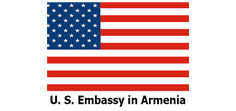On September 12, the government approved the draft law on Making Amendments and Addenda to the Law on Banking Secrecy, which has been the subject of much debate. Deputy Prime Minister Mher Grigoryan expressed concern at the meeting that this would contribute to the increase of cash transactions, which entails considerable corruption risks.
According to former Minister of Agriculture Arthur Khachatryan, the new law will allow access to confidential information without a court order, only at the request of the investigator. A number of media outlets have also published articles suggesting that the proposed changes will virtually eliminate the banking secrecy law.
During a press conference in Vanadzor on September 16, Prime Minister Nikol Pashinyan referred to the bill, noting that the system also works in Scandinavian countries, and that the government is striving to reach Scandinavian countries in the fight against corruption.
The Fact Investigation Platform has decided to find out what the amendment to the Law on Banking Secrecy actually means and what the international practice is.
The legal regulation
Currently, the Law on Banking Secrecy adopted in 1998 operates in Armenia, which provides that criminal prosecution authorities may obtain bank secrecy information on suspected or accused persons only on the basis of a court order. In some cases, information containing bank secrets may be disclosed with written or verbal authorization given by the person in court. In this case and in all other cases, prosecution authorities have the right to receive information only about the person concerned.
According to another article, the Central Bank has the right to inform and transfer customer bank information to law enforcement agencies if there is any suspicion that money laundering has taken place.
The amendments
The government-approved bill sets out certain amendments that allow prosecution authorities to obtain not only the data of the person directly involved in the case, but also the banking data of their immediate family members and affiliates.
The new draft also defines all offenses in which the transfer of said information shall be permitted.
The amendment to the law is justified by the fact that the current regulations do not allow disclosure of cases of crimes where the transactions were carried out not from the perpetrator’s but from another person’s bank account.
Deputy Prime Minister Mher Grigoryan’s opinion that in case of limiting banking secrecy the number of cash transactions will increase is realistic. However, the law also regulates the limitation of cash transactions in the case of both commercial and official transactions. Thus, according to the RA Law on Public Service, cash transactions made by officials cannot exceed 2 million AMD.
And the cash paid for the supply of goods, works or services can not exceed 300 thousand AMD, and 3 million AMD during a month.
Former Minister of Agriculture Arthur Khachatryan expressed the same concern. According to him, after the adoption of the bill, the alternative to the banking system will be cash, there will be “outflow of deposits from banks”. He also noted that the current regulation is correct, according to which this information is provided by a court ruling, while it is now envisaged to obtain information by the investigator’s decision.
The bill, however, regulates receiving information in a different way. Accordingly, the investigator may, with the consent of the prosecutor, file a motion, and, if satisfied, the court must make an appropriate and reasoned decision. The Central Bank has also provided clarification on this issue.
As for the publications that the bill will eliminate the legal regulation of bank secrecy, let us note that the bill does not stipulate any other restriction of secrecy other than the one mentioned above. Banking data may be accessed only by a reasoned court decision.
The international practice
As a rule, countries that strictly maintain banking secrecy have large “reserves” of offshore funds in their banks. Thus, according to the Financial Secrecy Index, in 2018, the “top secret” country was Switzerland. According to the source, about 5% of the world’s offshore assets are concentrated there. Here, however, it is possible to obtain the necessary information in the cases specified.
Reuters news agency also referred to the phenomenon in 2018, noting that the era of banking secrecy is coming to an end, as even Switzerland has begun to provide confidential information.
As the Prime Minister noted during the press conference, in Scandinavian countries there is also a system of restriction on banking secrecy. In Sweden, for example, the law allows to provide information containing a bank secret at the request of an investigator or prosecutor conducting an investigation. Here too, as is foreseen in Armenia, in some cases it is possible to obtain confidential information without the knowledge of that person. The Scandinavian countries (Denmark, Norway, Sweden) occupy the middle position in the Financial Secrecy Index rating, while they do not have a large stock of offshore funds.
In the Scandinavian countries there is also no subject-related restriction on the provision of banking data, that is, it is possible to obtain not only the banking data of the suspect or the accused, but also information relating to related persons.
The issue of investments
Theses on the possible drop in investments are a major part of discussions on the bill. Former Minister of Economic Development and Investments Artsvik Minasyan stated in an interview that the government’s decision on banking secrecy does not comply with international best practice.
“This will lead to people withdrawing money, switching from non-cash to cash, and what’s worse, especially for a country that is looking for foreign investment, simply closing the door to potential cash inflows,” Minasyan said.
Reflecting on the experience of Denmark, Norway and Sweden again, it should be noted that these countries do not lack investment though they are not distinguished by strict banking secrecy rules. According to Moody’s Investors Service, all three Nordic countries have the highest sovereign rating (Aaa), which speaks to the countries’ financial and investment opportunities. Referring to the rating of Sweden, for example, the agency writes that the country’s credit strength is related to its development potential, established institutions and stable political situation, without mentioning any negative impact that the banking secrecy system may have.
Ani Avetisyan

 FACTOMETER
FACTOMETER









